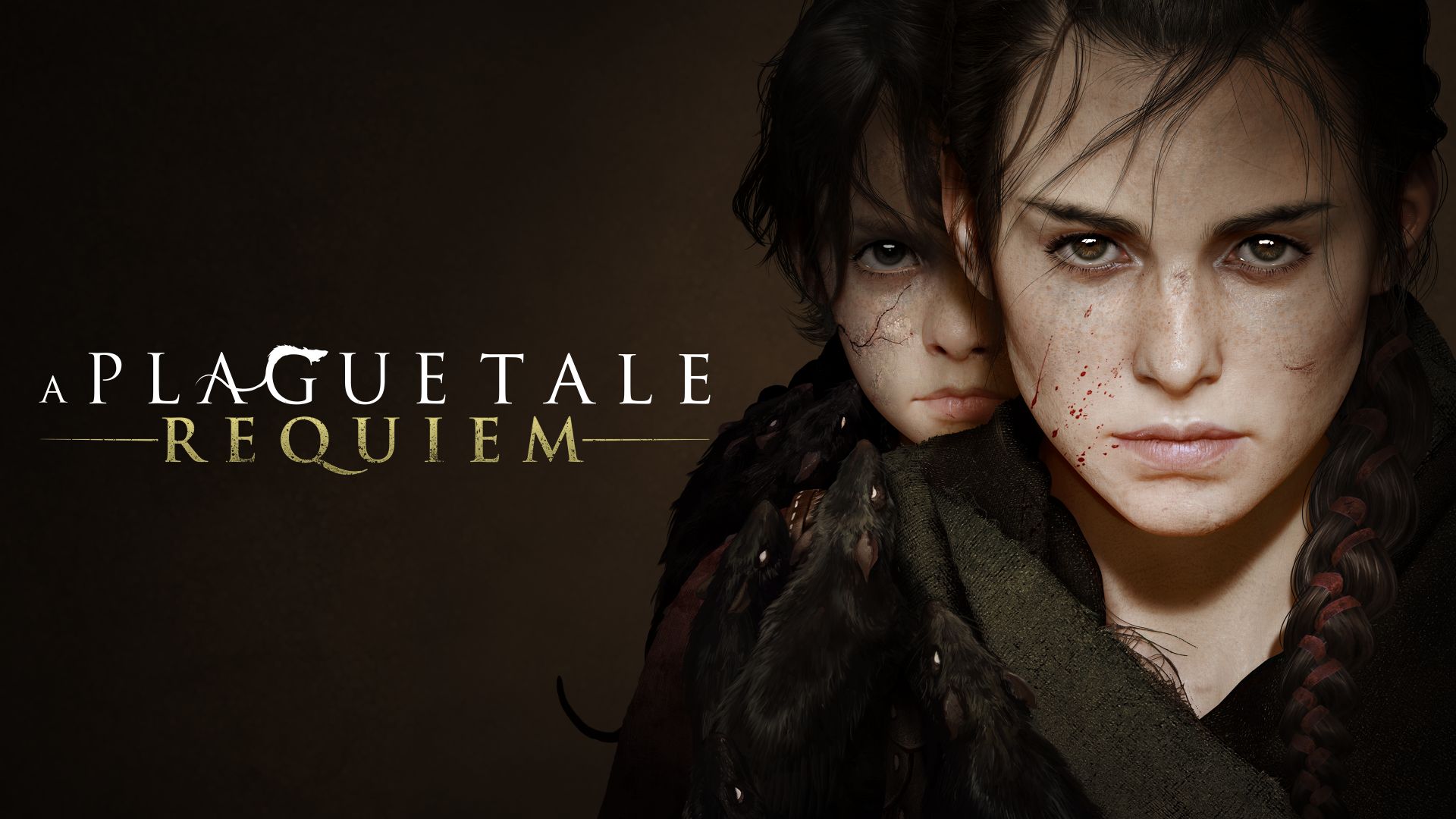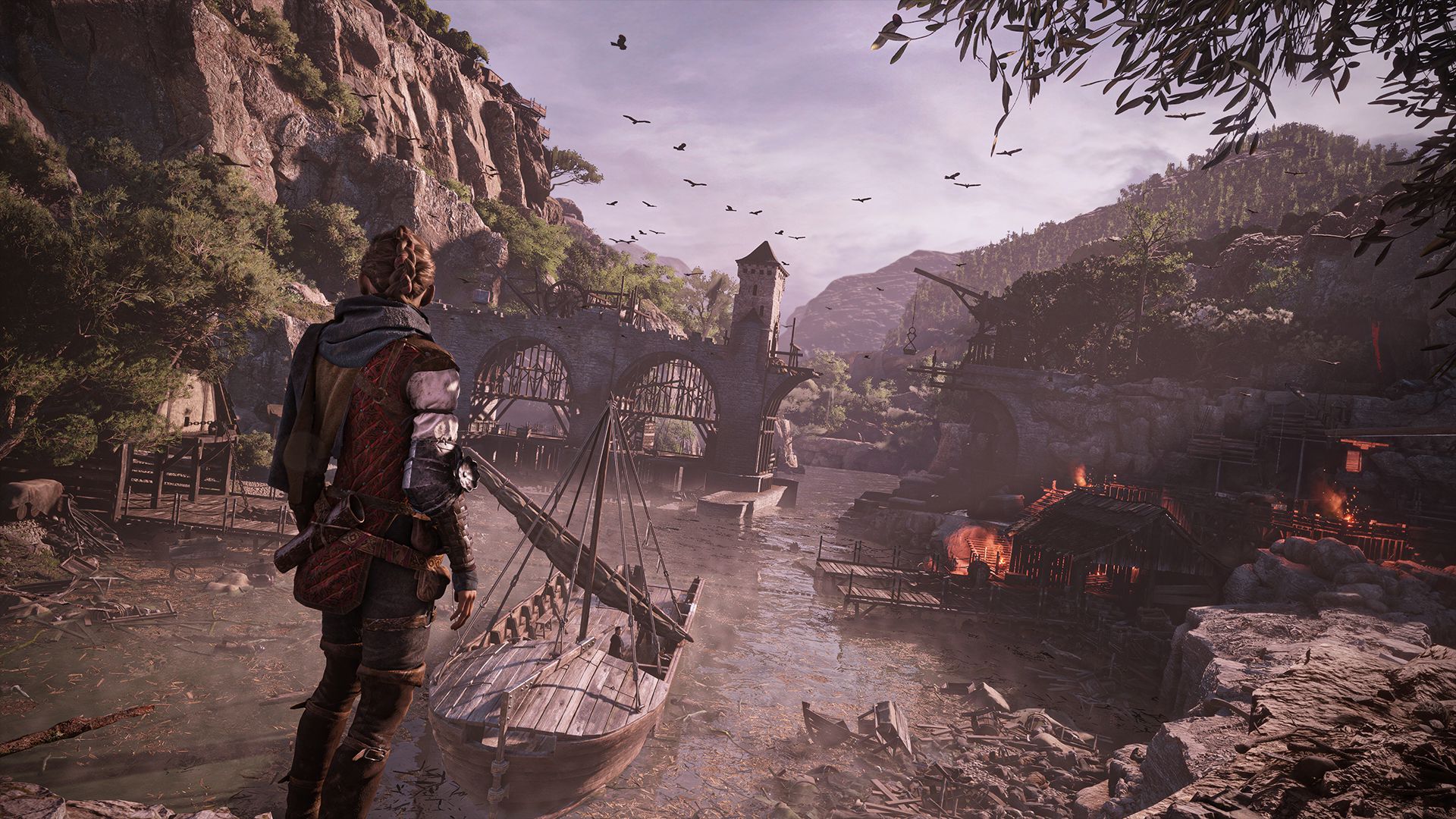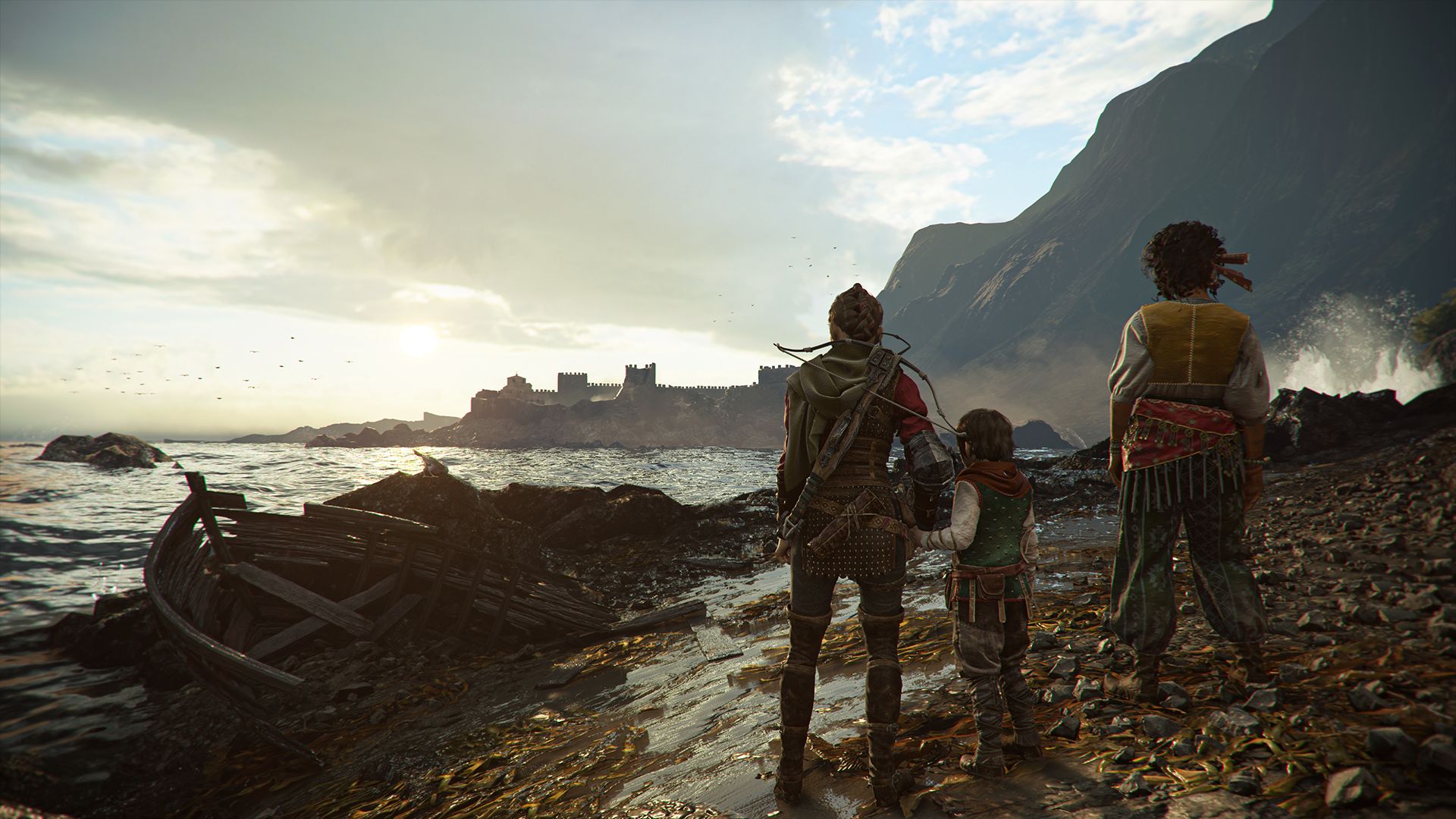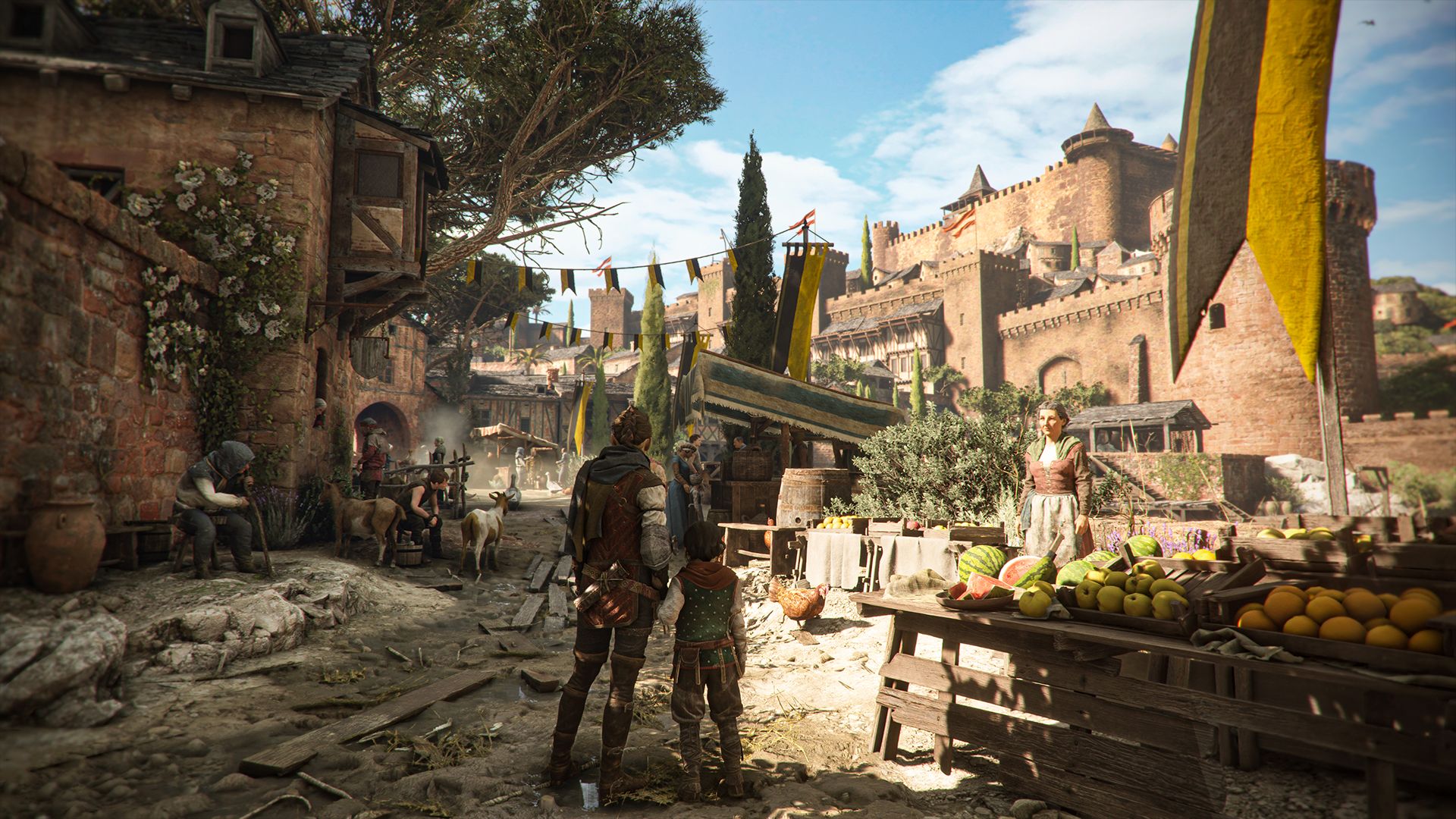
A Plague Tale: Requiem – Creating a New Setting for Amicia and Hugo
Hi everyone, I’m Sébastien Renard, Lead Writer on A Plague Tale: Requiem, and I’m excited to share some details about the making of our game!
Giving a Sense of History
A Plague Tale: Requiem will keep the high standard of realism set by the first title. To root it in history, we have been building Requiem’s world through an extensive process. It involved a close-knit collaboration between the art and the narrative departments.
We turned to many tools and resources, notably books, but also information gathered throughout the internet from Wikipedia (which is a fantastic place to start off research!) to more specialized websites! We also worked with Roxane Chila, a doctor in Medieval History to get inspired by a medieval France that would be as realistic as possible. We even drew upon the personal experiences of some of our team members, who know well the French parts where the game takes place. Our intuition is a crucial element in this process: we need it to find balance between our creative decisions and their credibility in the game’s world. For instance, women in A Plague Tale have a freedom that isn’t realistic compared to the historical setting, or their role in dialogues scenes isn’t representative of the discussion dynamics occurring at that time. Another example would be Amicia’s outfit, because women wouldn’t wear pants at that time. These are deliberate anachronisms.

A Fresh New Setting
In A Plague Tale: Innocence, players experience Amicia’s and Hugo’s story in gloomy, war-ridden environments. For this direct sequel, we wanted for the player to experience a change of scenery, and many other locations were considered before deciding to set the game in France once again. The southern parts of the country will be explored this time, and it will allow for a fresh visual experience.
Leaving the overcast atmosphere of 14th century Aquitaine behind, Provence will provide a new, more colorful, and more vibrant palette. It allows us to bring signature grounded and emotion-heavy tones to other landscapes, creating an even sharper contrast between the harsh reality of the medieval setting, in which terrible events are happening, and beautiful, sometimes uncharted environments.

A Detailed and Contrasted Décor
One aspect we wished to bring forth was to add details and have them vary from one level to another, thus bringing a more contrasted experience. It’s a real challenge to keep renewing the setting for a whole game; we must keep it coherent with the story, the emotions we want to convey at that moment, but also what these new places would imply in terms of gameplay, including the possible combat or puzzle mechanics that would make sense in such environments. So, we investigated expanding possibilities on top of what had previously been proposed in Innocence: what could we add to the fields, villages, and churches that players are already familiar with?
Along with vibrant, busy marketplaces, an example of a unique location we implemented is a medieval dyery. This was inspired from our collaboration with Roxane. Her input was precious to find the right ideas, and she suggested details which truly heightened the game’s visual impact: having players go through a dyery means enriching the historical context while working on adding colorful details that make sense in the 14th century. Another example would be our large, busy harbors with great ships, referencing the importance of the Mediterranean business at that time.

Thanks for joining us for this sneak peek — we can’t wait to reveal more about Hugo and Amicia’s next adventure in the coming months! A Plague Tale: Requiem releases later this year on Xbox Series X|S and PC and will be available day one with Xbox Game Pass!
